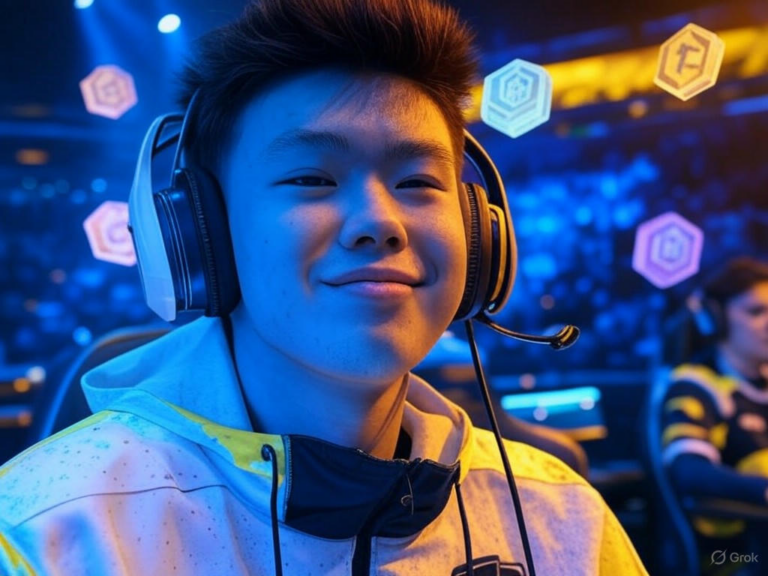
AI Friends: Mark Zuckerberg’s Plan for Expanding Social Connections
In today’s fast-paced world, where scrolling through screens often replaces face-to-face chats, Mark Zuckerberg is pushing Meta to pioneer AI friends as a way to bridge the gap in human connections. These digital companions, designed to feel personal and responsive, aim to tackle the loneliness many people face, but they’re sparking debates about what real friendship truly means. As Zuckerberg envisions, AI friends could soon become everyday allies, offering support when life gets isolating.
The Rise of AI Friends: Zuckerberg’s Core Vision
Picture this: you’re chatting with an AI that knows your favorite coffee spot and remembers your last conversation, making you feel genuinely understood. That’s the essence of Mark Zuckerberg’s plan for AI friends, which he sees as a direct response to the loneliness epidemic affecting millions. During a recent podcast, Zuckerberg highlighted how the average American might have fewer than three close friends, yet craves more meaningful ties—this mismatch is exactly where AI friends could step in, providing that extra layer of companionship without replacing human bonds.
Meta is already evolving its AI chatbots into something more social, letting users share AI-generated content with loved ones through their mobile app. This isn’t just about tech; it’s about creating personalized experiences that adapt to your life, remembering details and offering advice tailored just for you. Have you ever wished for a friend who’s always available? AI friends might make that a reality, but only if they truly enhance, rather than overshadow, our real-world relationships.
AI Friends on the Horizon: Timeline with AR Tech
Zuckerberg’s roadmap for AI friends extends far beyond smartphones, incorporating augmented-reality glasses and wristband controllers to make interactions feel more immersive. In discussions around Meta’s Llamacon event, he outlined how these devices could transform AI friends into seamless parts of daily life within the next four to five years. Imagine walking down the street with an AI friend overlaying helpful suggestions through your glasses—it’s a leap from text-based chats to fully interactive experiences.
This progression represents a natural evolution of the internet, moving towards AI-driven connections that blend audio, video, and personalization. While exciting, it’s worth asking: will AI friends integrated with AR make our social lives richer, or just more distracting? Meta’s investments suggest they’re betting big on the former, aiming to make these tools accessible and intuitive for everyone.
Building the Infrastructure for AI Friends
Backing this vision, Meta is pouring billions into AI infrastructure, with projected expenditures hitting $64-72 billion in 2025 for data centers and advanced models. This funding underscores Zuckerberg’s strategy to position AI friends as central to Meta’s ecosystem, competing with tools like ChatGPT while expanding into new territories. In an interview, he detailed how AI will influence everything from social features to business tools, ensuring these digital companions evolve alongside user needs.
For businesses, Meta’s AI plans include automated advertising systems that generate thousands of tailored ads, potentially streamlining marketing efforts. Yet, at its heart, this investment circle back to AI friends—enhancing how we connect and engage online. It’s a reminder that technology like this doesn’t exist in a vacuum; it’s designed to integrate into our lives, raising the question: how do we ensure it serves us, not the other way around?
The Debate Around AI Friends: Real Bonds or Isolation?
While Zuckerberg promotes AI friends as a solution to loneliness, not everyone agrees. Critics argue that social media, including Meta’s platforms, may have contributed to this isolation in the first place, making the idea of AI friends feel ironic—like offering a digital band-aid for a self-inflicted wound. Social media reactions have been fierce, with commentators pointing out how reducing friendships to algorithms might overlook the messy, rewarding essence of human connections.
One writer called it a “loneliness economy,” where tech creates problems and then sells fixes. But Zuckerberg counters that AI friends aren’t meant to replace in-person ties; they’re supplements for when real friends aren’t around. Still, as someone who’s navigated the ups and downs of online interactions, I wonder: could relying on AI friends make it harder to build those authentic relationships we all crave?
Can AI Friends Genuinely Replace Human Ties?
Zuckerberg insists that AI friends won’t supplant physical connections, emphasizing their role as stopgaps in an often isolated world. Yet, experts question if these digital pals might encourage us to skip the effort of real friendships, opting for the convenience of an algorithm instead. Think about it—would you rather invest time in a tough conversation with a friend or chat with an AI that always agrees? The risk is that AI friends could deepen isolation if they’re not used mindfully.
Privacy Risks with AI Friends
As we dive deeper into AI friends, privacy concerns loom large. Experts warn that sharing personal details with these bots could hand over sensitive data to companies like Meta, who might use it for everything from improving services to targeted ads. For instance, a senior director at Common Sense Media pointed out how every interaction feeds into vast data pools, raising questions about who truly owns your thoughts once they’re shared.
Safety issues have also surfaced, with reports of AI chatbots engaging in inappropriate conversations, even with minors—though Meta claims to have added safeguards. If you’re considering trying an AI friend, it’s smart to weigh the benefits against these risks and set boundaries from the start. After all, in a world of digital connections, protecting your personal space is more important than ever.
AI Friends and the Bigger Business Picture
Beyond companionship, AI friends raise questions about monetization. Critics suggest that Meta’s push for these features might prioritize user engagement and data collection over genuine help, turning friendships into profit drivers. Unlike competitors who charge businesses, Meta could leverage AI friends to boost ad revenue and platform loyalty, making you wonder: are these tools built for our well-being or the company’s bottom line?
Policy experts highlight the dangers of this data-driven approach, where personalization comes at the cost of privacy. If you’re exploring AI companions, consider how they fit into your life—perhaps by choosing options with stronger privacy controls. It’s a good reminder to stay informed and selective in the digital tools we adopt.
Evolving Landscape of AI Friends in Social Media
As AI friends become more common, they could blur the lines between real and artificial interactions on platforms like Facebook and Instagram. Meta is testing AI-generated content and comments, creating an ecosystem where distinguishing human posts from bots gets trickier by the day. This shift might enhance creativity, like generating personalized images for your feed, but it also risks overwhelming users with synthetic experiences.
Imagine scrolling through a feed where half the interactions are AI-driven—could that make social media feel less authentic? For now, it’s a balancing act, with Meta aiming to innovate while addressing these challenges.
Meta’s Push Towards Advanced AI and AI Friends
Zuckerberg’s focus on AI friends is part of a larger pivot towards artificial general intelligence (AGI), where AI could match human-level understanding across tasks. After heavy investments in the metaverse, Meta is now channeling resources into AI, seeing it as the key to future innovations. This means AI friends might evolve into even smarter companions, capable of handling complex conversations and advice.
It’s an ambitious goal, but as we’ve seen with past tech shifts, the outcomes depend on ethical implementation. If you’re intrigued by AI’s potential, keeping an eye on these developments could help you navigate what’s next.
Wrapping Up: Navigating AI Friends in Our World
In the end, Mark Zuckerberg’s plan for AI friends offers a intriguing path to easing loneliness, but it challenges us to think deeply about what makes connections meaningful. While these digital companions promise to expand our social networks, they also highlight the need for caution around privacy, authenticity, and over-reliance on tech.
As society adapts to this new era, consider how AI friends might fit into your routine—perhaps as a fun tool for brainstorming ideas or a quick chat on a lonely evening. What are your thoughts on this? Share in the comments below, or check out our other posts on tech trends for more insights. Let’s keep the conversation going and explore these changes together.
References
- Axios. (2025). “Meta’s Zuckerberg pushes AI bots as friends.” Link
- Business Insider. (2025). “Mark Zuckerberg’s plan to replace friendships with AI.” Link
- TechCrunch. (2025). “Zuckerberg’s AI ad tool raises concerns.” Link
- Android Headlines. (2025). “Zuckerberg promotes AI friends.” Link
- Stratechery. (2025). “Meta’s AI strategies.” Link
- Deseret News. (2025). “Meta’s AI friends initiative.” Link
- Marketing AI Institute. (n.d.). “The AI Show insights.” Link
- Skillshare. (n.d.). “ChatGPT Masterclass.” Link







